This is the 45th set from a collection of 380 postcards, mostly of the Kaiserliche Marine, or the German Imperial Navy. For the main catalog page of this archive, visit WWI German Navy Postcard Collection.
This set includes:
- Hochseetorpedoboot
- S.M.S. Weißenburg in forcierter Fahrt
- Torpedoboot G 110 nach der Havarie.
- S.M.S. Schleswig-Holstein Bugansicht
- Unsere Marine – Auf der Dampfpinasse
- Unsere Marine – Auf Posten
- Unsere Marine – Beim Baden
- Die Benagelte des wehrmals backbordseite in Kiel.
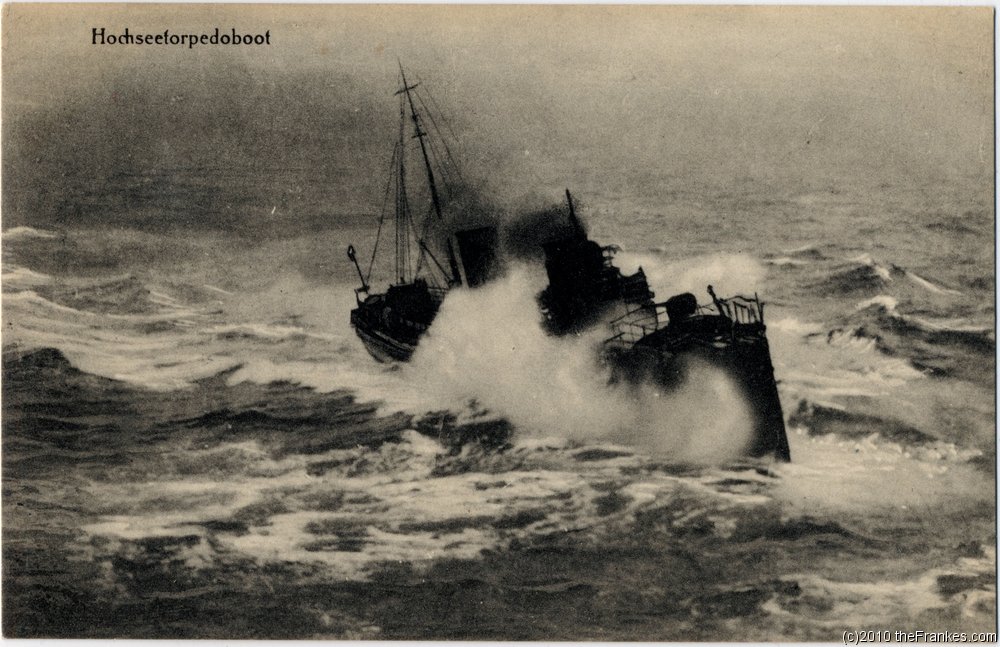
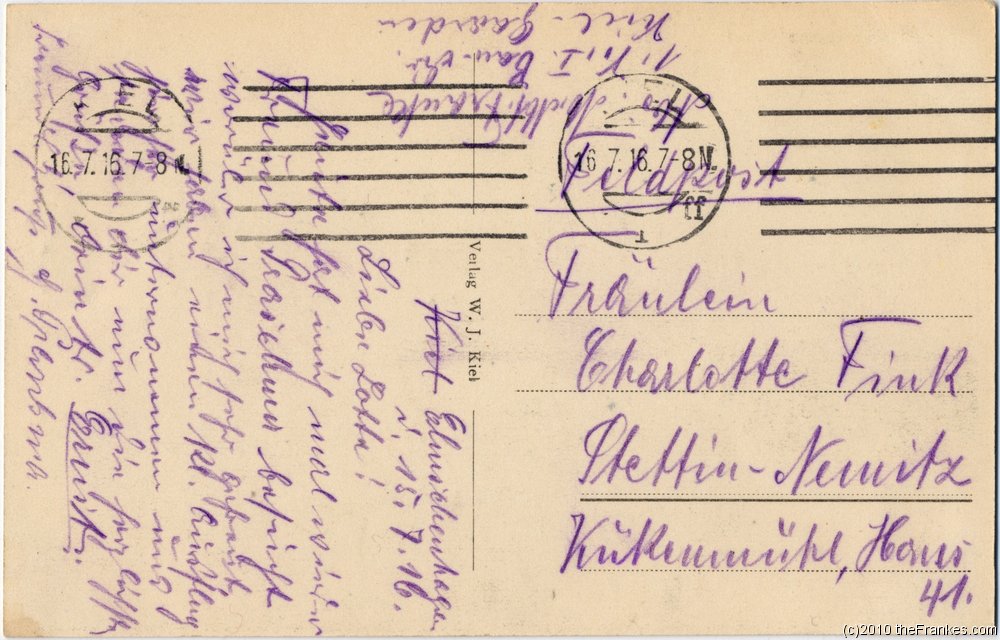
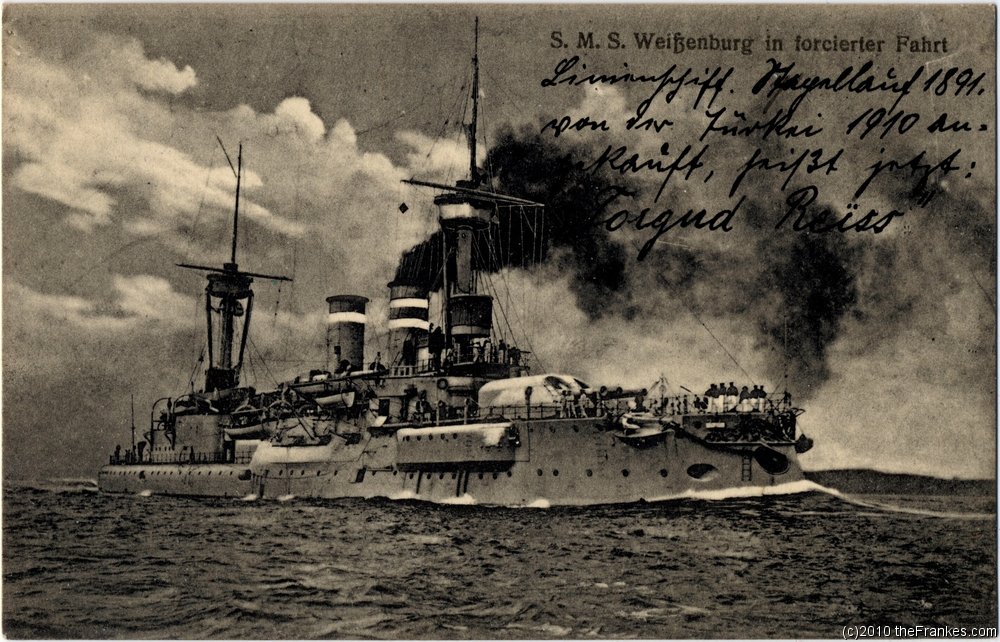
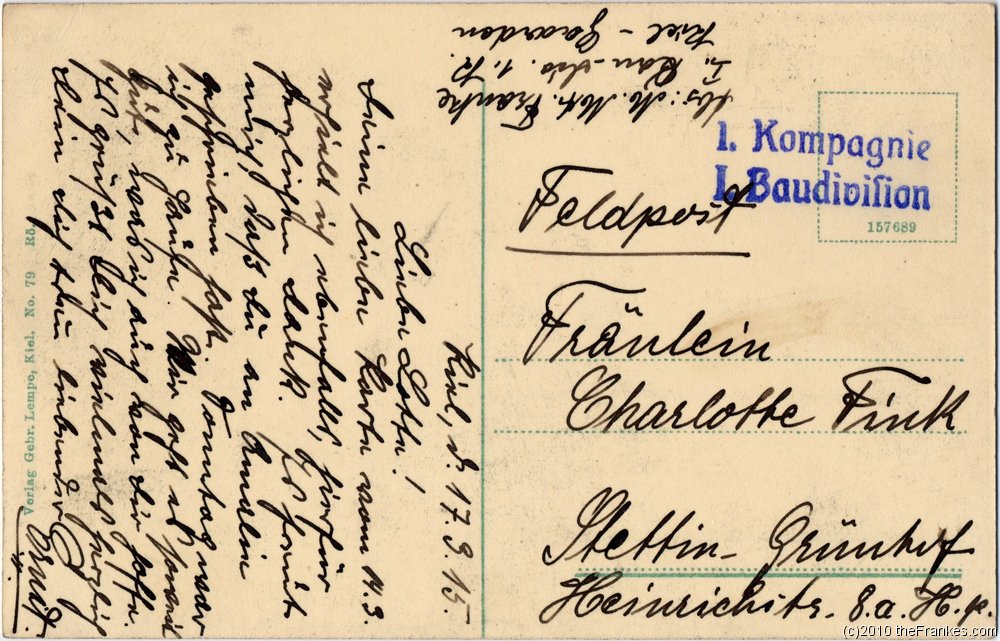
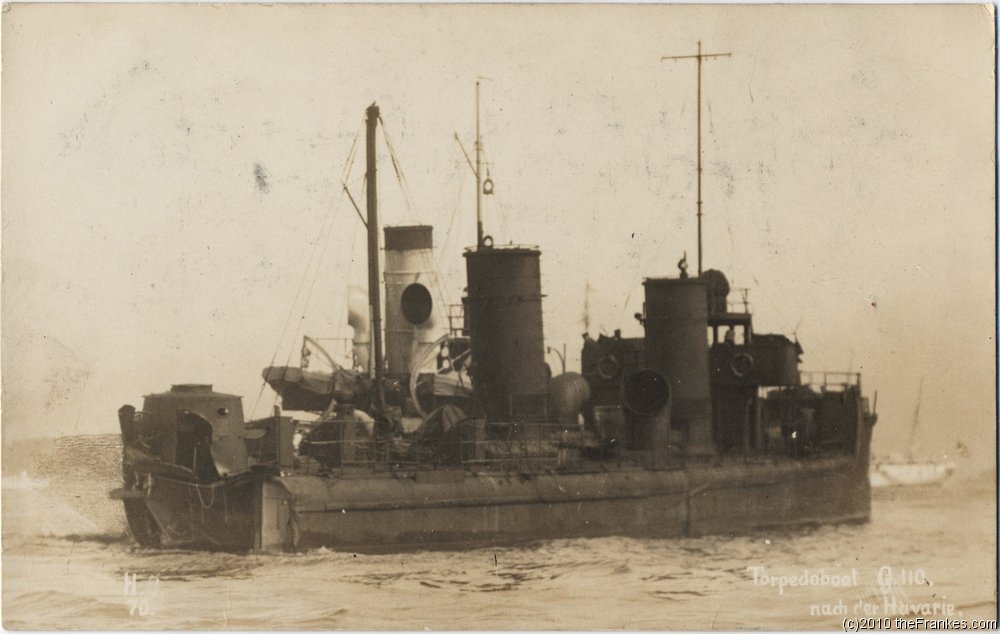
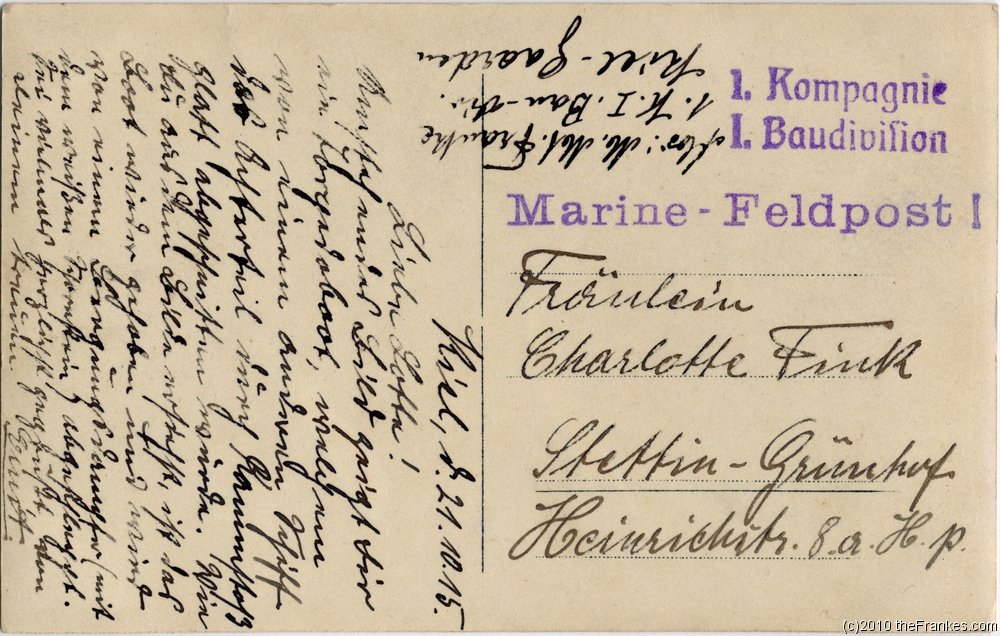
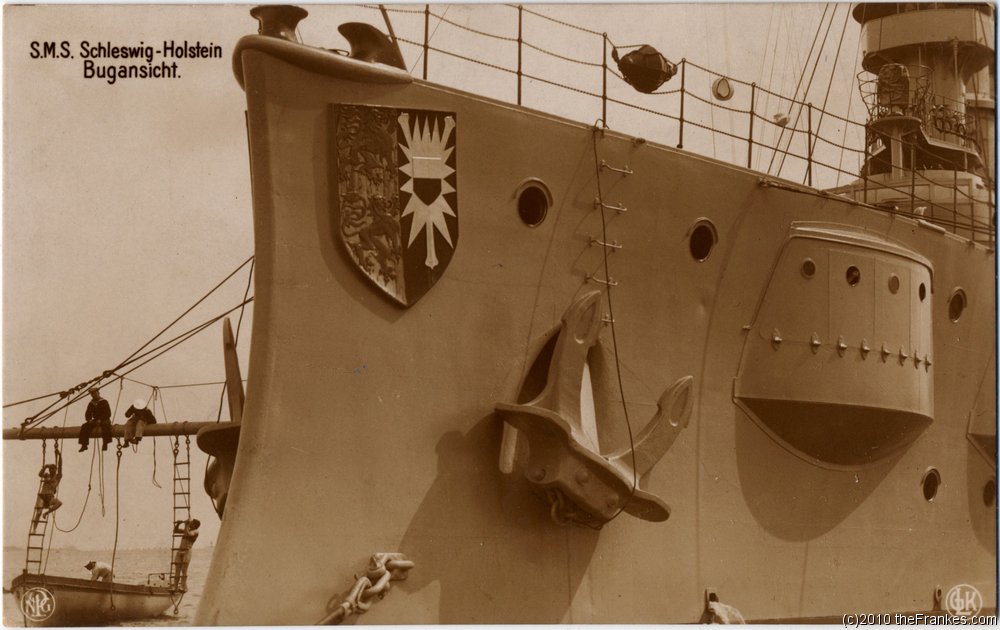
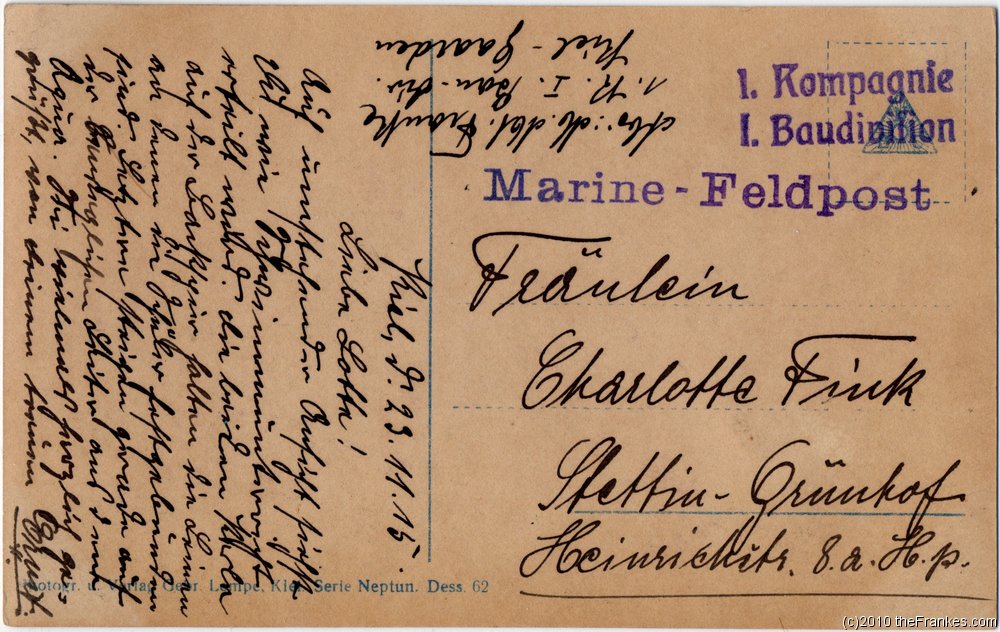
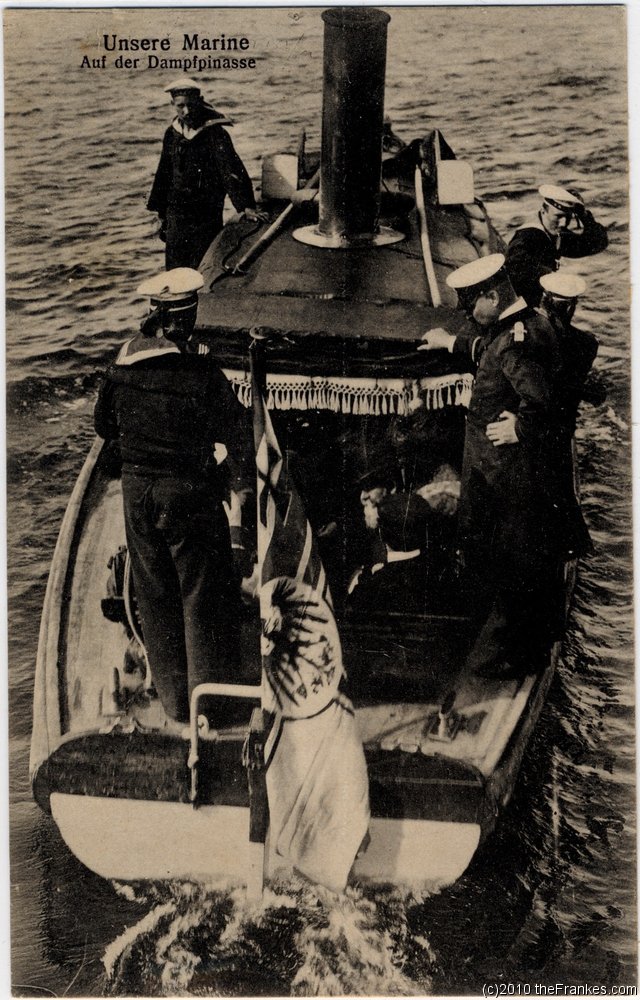
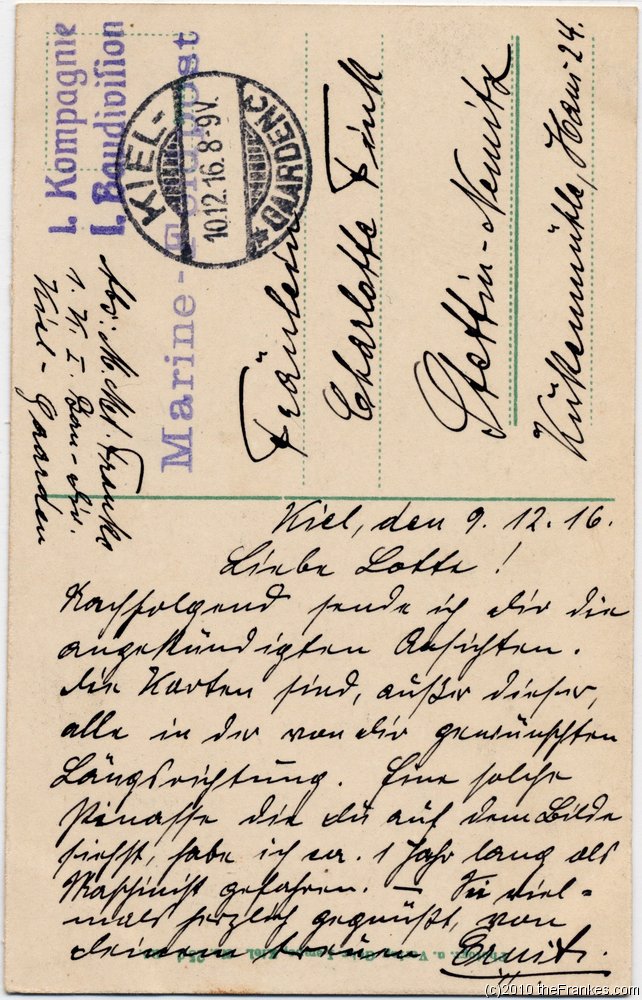
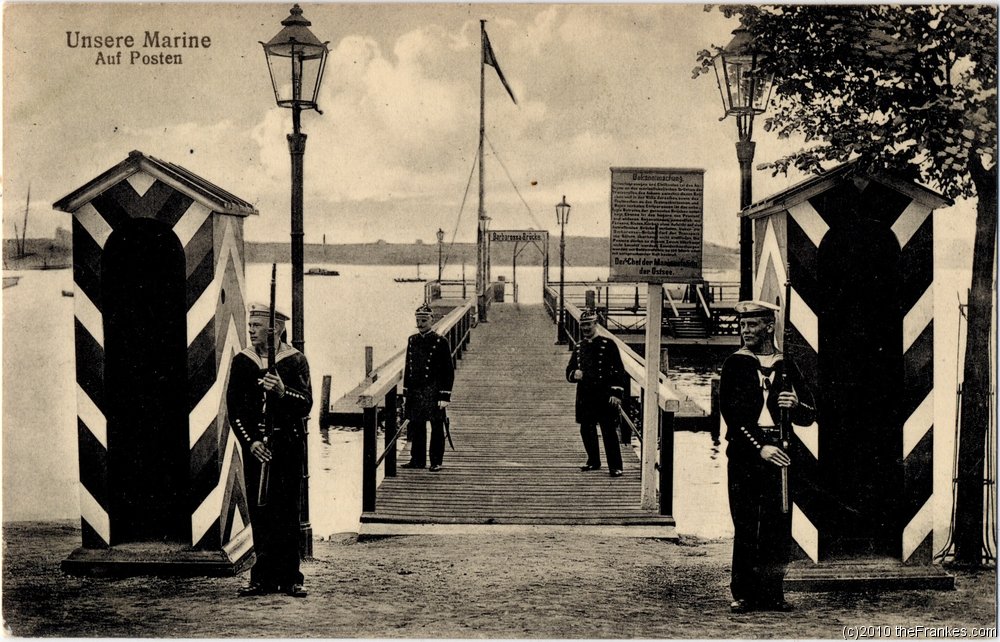
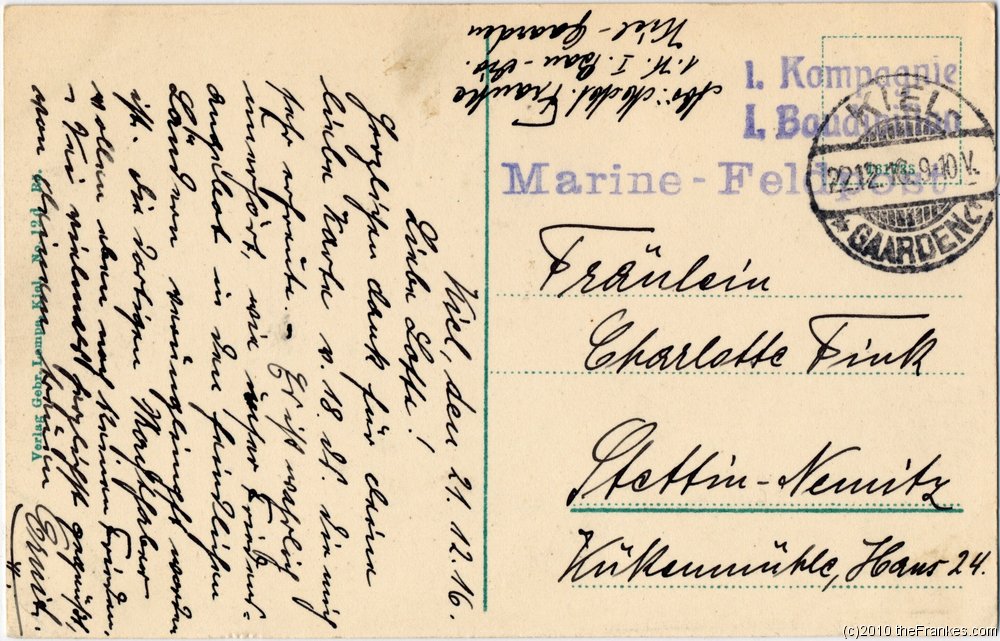
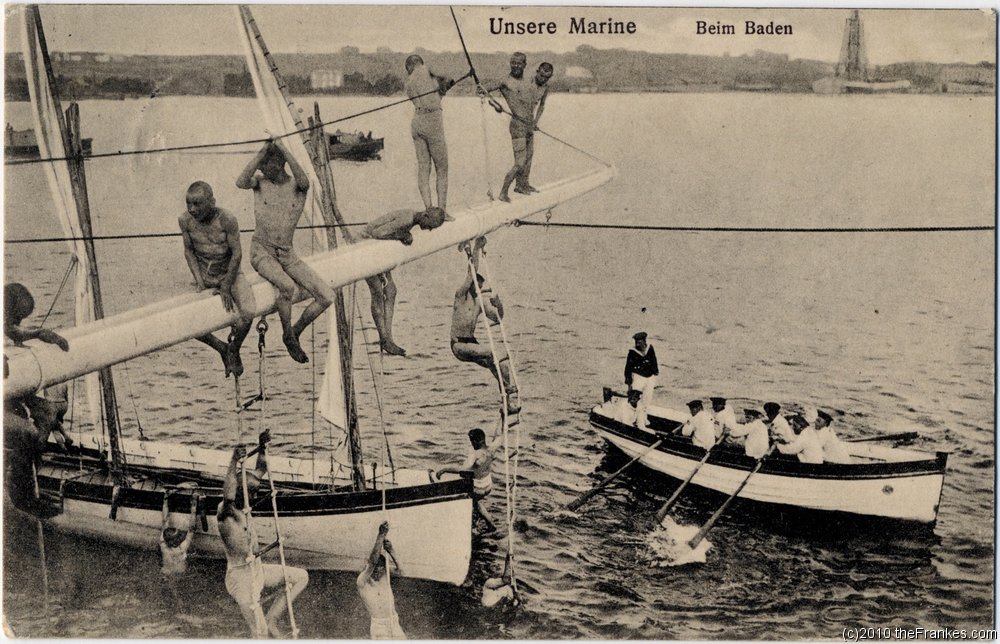
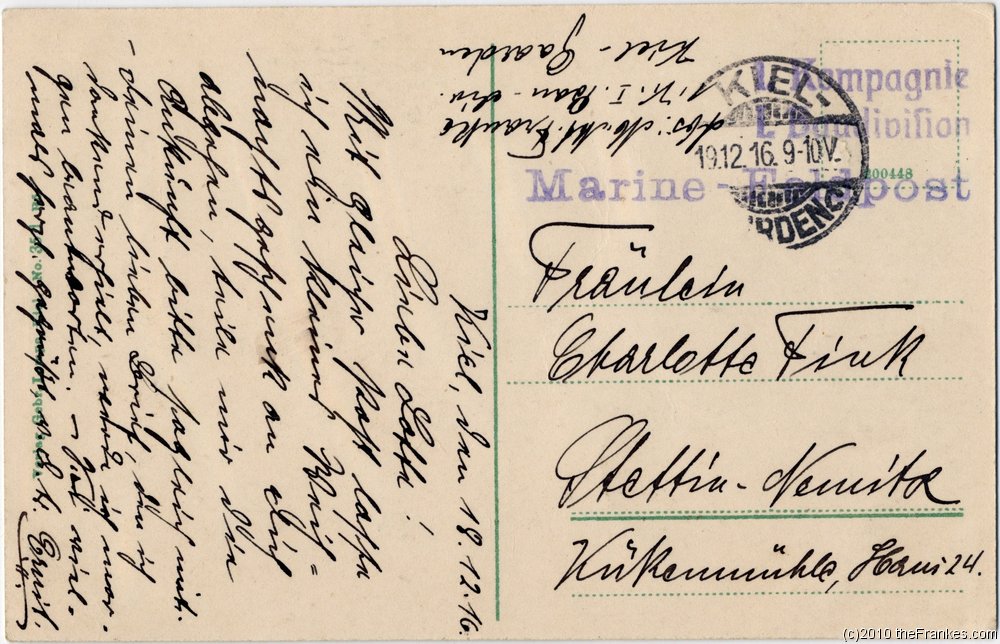
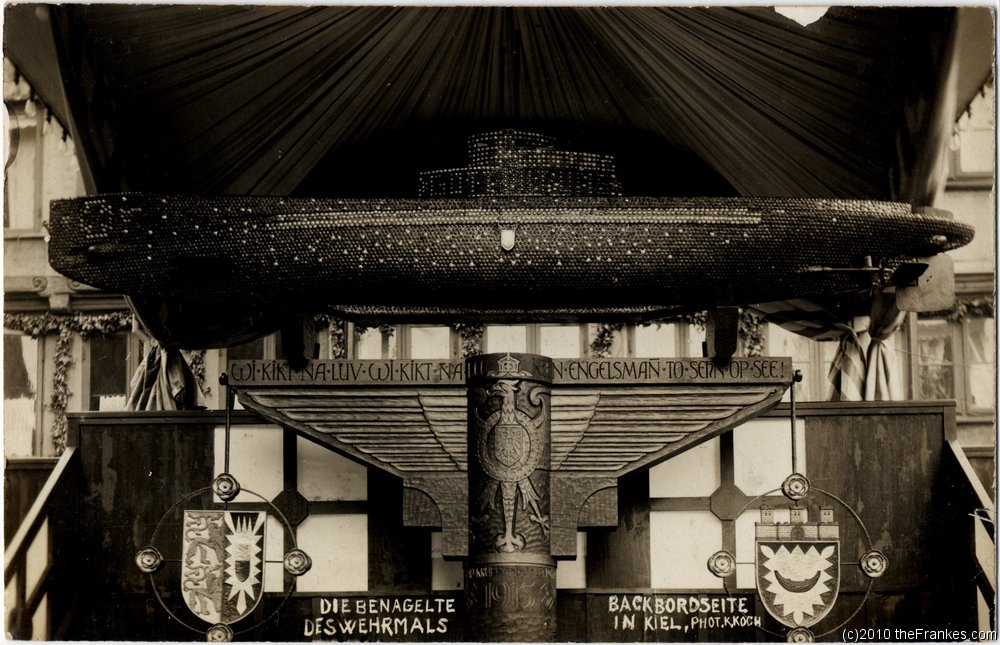
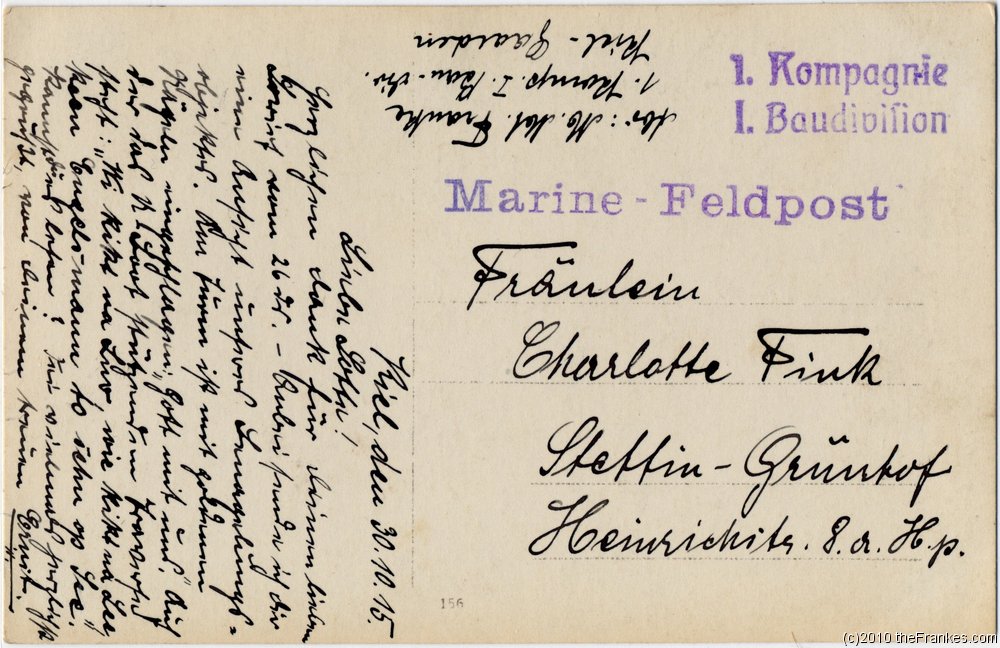

Axel:
SET 45
1. Liebe Lotte! Elmschenhagen, d. 15.7.16
Gestern hat mich mal wieder Freund Praschner besucht, worüber ich mich sehr gefreut. (grammatically incorrect: he forgot the word „habe“), wir haben einen Ausflug hierher unternommen und senden Dir nun die herzlichsten Grüße. Dein treuer Ernst
Dear Lotte! Elmschenhagen, 15.07.16
Yesterday I visited my friend Praschner again, I was very delighted, we had a walk over here and are now sending the most affectionate greetings. Your truthful Ernst.
2. Liebe Lotte! Kiel, d. 17.3.15
Deine liebe Karte vom 14.3. erhielt ich ebenfalls, hierfür herzlichen Dank. Es freut mich, dass Du an Amalie geschrieben hast. Sonntag war ich zu Hause. Mir geht es soweit gut, was ich auch von Dir hoffe. Es grüßt Dich vielmals herzlich Dein Dich treu liebender Ernst.
Dear Lotte! Kiel, 17.03.15
I also received your dear card dating 14th .03. I am delighted that you wrote to Amelie. On Sunday I was at home . I am fine so far, hope the same from you. Many affectionate greetings from your truthful loving Ernst
3. Liebe Lotte! Kiel, d. 21.10.15
Umstehendes Bild zeigt Dir ein Torpedoboot, welches von einem anderen Schiff das Achterteil durch Rammstoß glatt abgeschnitten wurde. Wie Du aus dem Bild ersiehst ist das Boot wieder gehoben und wird von einem Bergungsdampfer (mit dem weißen Schornstein) abgeschleppt. Sei vielmals herzlichst gegrüßt von Deinem treuen Ernst.
Dear Lotte! Kiel, 21.10.15
The picture overleaf shows a torpedo-boat the aft part of which was cut off by a ramming from another ship. As you can see in the picture, the boat was raised and is towed by a salvation tug (with the white funnel). Many affectionate greetings from your truthful Ernst
4. Liebe Lotte! Kiel, d. 23.11.15
Auf umstehender Ansicht siehst Du wie Schwimmunterricht erteilt wird. Die beiden Kerle auf der Backspier halten die Leinen an denen die Schüler festgebunden sind. Letztere steigen gerade auf der beweglichen Leiter aus dem Aqua. Sei vielmals herzlichst gegrüßt von Deinem treuen Ernst.
Dear Lotte! Kiel, 23.11.15
Overleaf you can see how swimming is taught. The two guys on the pier are holding lines to which the trainees are fastened. They are just leaving the water with the help of a movable ladder. Many affectionate greetings from your truthful Ernst
5. Liebe Lotte! Kiel, den 9.12.16
Nachfolgend sende ich Dir die angekündigten Ansichten. Die Karten sind, außer dieser, alle in der von Dir gewünschten Längsrichtung. Eine solche Pinasse die Du auf dem Bilde siehst, habe ich ca. 1 Jahr lang als Maschinist gefahren. Sei vielmals herzlichst gegrüßt von Deinem treuen Ernst.
Dear Lotte! Kiel, 09.12.16
Following I am sending you the promised views. All cards except this one are long views as you ordered. I drove a motor boat like the one on the picture for about one year as a machinist. Many affectionate greetings from your truthful Ernst
6. Liebe Lotte! Kiel, den 21.12.16
Herzlichen Dank für Deine liebe Karte vom 16.d.M. die mich sehr erfreute. – Es ist wahrlich unerhört, wie unser Friedensangebot in den feindlichen Ländern verunglimpft worden ist. Die dortigen Machthaber wollen eben noch keinen Frieden. – Sei vielmals herzlichst gegrüßt von Deinem treuen Ernst.
Dear Lotte! Kiel, 21.12.16
Many thanks for your dear card dating 16th of this month. – It really is unbelievable how our peace offer is being rejected by the enemy countries. The people in charge there just do not want peace. Many affectionate greetings from your truthful Ernst
7. Liebe Lotte! Kiel, den 18.12.16
Mit gleicher Post lasse ich ein kleines Weihnachtsgeschenk an Dich abgehen, teile mir bitte die Ankunft sogleich mit. – Deinen lieben Brief, den ich dankend erhielt, werde ich morgen beantworten. Sei vielmals herzl(ichst) gegrüßt v(on) D(einem) tr(euen) Ernst.
Dear Lotte! Kiel, 18.12.16
I am sending a little Christmas present with the same mail, please tell me right away when it arrives. – I will answer your dear letter, which I received with thanks, tomorrow. Many affectionate greetings from your truthful Ernst
8. Liebe Lotte! Kiel, den 30.10.15
Herzlichen Dank für Deinen lieben Brief vom 26. d.M. – Anbei sende ich Dir eine Ansicht unseres Benagelungsobjekts. Am Turm ist mit goldenen Nägeln eingeschlagen: „Gott mit uns“. Auf das U-Boot stützenden Traverse steht: „Wi kikt na Luv, wie kikt na Lee, keen Engelsmann to sehn op See“ (North German dialect). Kannst Du das lesen? Sei vielmals herzlichst gegrüßt von Deinem treuen Ernst.
Dear Lotte! Kiel, 30.10.15
Many thanks for letter dating 26th of this month. – Enclosed is a view of our “nail – object”. On the tower the golden nails read “God with us”. On the rail supporting the U-Boat the inscription reads “We look windward, we look leeward, but no Englishman to see on the sea”. Can you read that? Many affectionate greetings from your truthful Ernst
Urs:
Hi, Alex and Axel
history comment:
SET 45
#6 – The “peace offer” : Due to pressure from the Austro-Hungarian government (Emperor Karl had succeeded Emperor Franz-Joseph who had reigned since 1848 for 68 years), which foresaw a near collapse of its empire due to military losses, the German government issued a “peace offer” to the Allied Powers on December 12, 1916.
The text spoke, however, only of the Central Powers` “invincible military power proven in combat” and made no offers altogether, especially not referring to the occupied areas of Belgium and France, but placing the responsibility of all future losses on those who refused to make peace.
The main political purpose was, probably, to appear, internationally, “peace-seeking” to the still neutral remaining United States and, internally, to the German population where questions were asked who was responsible for the continuation of the war.
The Allies` rejection on December 30, 1916, was used as a basis for a proclamation of Emperor Wilhelm II. issued on January 5, 1917, in which he placed all responsibility for the war “ … in the face of the Lord …” on the Allies and asked for courage to achieved a final victory. (this is the same text as in comment to Set 27 #8)